How To Make Curly Hair Not Frizzy – Helpful Tips
A guide to embracing your natural curls and saying goodbye to frizzy hair.

Image: Shutterstock
Those curly locks are more prone to frizz. Keeping them frizz-free is a challenge for those with curly and wavy tresses. So, how can you reduce frizz on curly hair? If you want to get that sleek hair look, merely brushing your hair would not suffice. Proper hair care, along with using the right hair care products, is important to rid the frizz from your curls.
This article explores the reasons behind your frizzy curls, ways to reduce frizz, and products that are suitable for frizzy curls. Take a look.
In This Article
Reasons Why Your Curly Hair May Be Frizzy
While small amounts of frizz can give your hair some extra volume, too much of it may not be too pleasing. The following could be some reasons behind your frizzy curls:
- Use Of Aggressive Shampoos
Shampoos are typically composed of cleansing agents, conditioning agents, additives like sulfates and silicones to smooth the hair (that later build up on the strands), and special care ingredients for specific conditions, such as dandruff. However, what may be causing the frizz is the use of aggressive shampoos that do not have these ingredients in appropriate compositions (1).
Moreover, you may face difficulty in untangling your strands. Some shampoos contain allergens like propylene glycol, formaldehyde-releasing preservatives, and parabens. These allergens are known to cause contact dermatitis and attrition (loss of hair strength) in certain individuals (1).
If you are facing such a problem, consult a dermatologist before replacing your product.
- Uncontrollable Hair Syndrome
This condition usually develops between infancy and three years of age. However, in some cases, it may affect the person even up to the age of 12 years.
With Uncontrollable Hair Syndrome, it becomes very tedious to comb the curly hair flat, thereby resulting in extra frizz. But, the good news is this syndrome improves with age for most people. It means they can achieve close-to-normal texture after adolescence (2).
 Fun Fact
Fun Fact- Disturbed Sleep Schedule
You should avoid using cotton pillowcases if you have curly hair. It is because the friction generated due to the pillowcase’s rough fibers may contribute to the frizz.
It may become even more challenging to remove frizz from curly hair if your sleep schedule is disturbed. A sound sleep means you will not toss and turn around the whole night, thus reducing the probability of friction.
- Humidity
If you have thick, curly hair, you already know how frizzy it can get in humid weather. However, fret not – you can control the frizz with these handy tips:
- Use a leave-in conditioner to smoothen your curls and eliminate frizz.
- Avoid washing your hair when it is humid.
- Use products that contain keratin.
 Quick Tip
Quick TipThat said, discuss it with your healthcare specialist before buying a new product, especially if you have a skin condition.
Let us move our discussion to the solution. Learn how to stop your curly hair from frizzing in the next section.
Key Takeaways
- Using shampoos with heavy chemical content, uncontrollable hair syndrome, irregular sleep, and humidity can cause frizz in curly hair.
- Following a few simple hair care, styling, and maintenance tips and using the right hair products can prevent frizz.
- Opt for hydrating conditioners and anti-humidity smoothening products to reduce frizz in curly tresses.
- Try DIY hair masks made with honey and glycerin, and apply coconut oil, argan oil, or shea butter to reduce frizz.
How To Reduce Frizz On Curly Hair
The following are some of the ways you can keep your curly hair from frizzing:
- Use A Satin Pillowcase
This seems like a simple solution, but a satin or silk pillowcase is said to reduce frizzy, curly hair naturally. The smooth surface of this fabric ensures that your hair glides on it when you turn during your sleep. By minimizing the chances of getting your hair tangled during the night, your curls become easier to manage when you wake up the next day.
- Trim Your Split Ends
While split ends are not healthy for any kind of hair, they are particularly worse for people with curly hair. They not only invite frizz but also make the hair brittle.
For this reason, you must trim your hair ends regularly. Trimming not only enhances their appearance but also keeps them healthy.
- Proper Nutrition
Like any other cells in your body, the hair follicle cells need proper nutrition to maintain hair health. Foods rich in vitamins A, E, and C and biotin – such as nuts, berries, and eggs – boost hair health and may help you control frizzy hair (3).
If you are taking vitamin supplements or living with an underlying condition, it is always important to consult your doctor.
- Do Not Wrap Up Your Wet Hair In A Towel
It is not a good idea to twist or wrap your wet hair in a terrycloth towel. Doing so may lead to frizz and breakage caused due to the heavy cotton fibers of the towel.
What can you do instead? The better alternative to reduce frizz in curly hair is to use a cotton T-shirt or a microfiber towel. Instead of wrapping and twisting, gently squeeze the water out of your hair using the T-shirt.
- Manage Your Curls With The Right Cut
Choosing the right hairstyle is critical for the health of your hair. Thick and curly hair should only be trimmed when dry, rather than damp, to achieve the exact shape and length.
One of the ways to remove frizz from curly hair is to consult an experienced stylist who is familiar and comfortable cutting curly hair. Without a proper cut, your hair may end up oddly-shaped.
Your curly tresses should be thicker at the top and thinner at the bottom, and not the other way round, giving the hair a round shape instead of triangular. Besides, regular trims are also essential for managing split ends and the thickness of your hair.
- Tweak Your Styling Technique
Did you know that your styling routine can also be a potential culprit behind the frizz?
First off, you should always use products on damp hair. It’s one of the best ways to get defined curls. Besides, when your hair is wet, the product spreads evenly through it.
To ensure even distribution, you should apply the hair products in sections. It will help you get rid of frizzy roots and achieve super defined ends.
- Do Not Overuse Hair Products
Managing your curly hair can be overwhelming. Due to this reason, many people overuse hair products that ultimately do no good for their hair.
Using 4-5 hair products on a daily basis can lead to an overload of build-up on your hair and scalp, thereby leaving your ends frizzy and roots greasy. That should not be the case.
Choose products that can offer a one-stop solution for your curly hair. Apart from that, they should be free of gluten, sulfates, parabens, and silicones that may contribute to frizz and cause damage to your scalp.
- Practice Mindfulness
Stress can cause hair follicles to shrink due to inflammation (4). In the dormant stage, the hair strands start breaking off in the middle of the hair growth cycle (5).
Thus, it is important to practice mindfulness to handle stressful situations more efficiently (6). For instance, consider going for outdoor walks and enrolling in yoga classes. Apart from that, you should sleep well, drink enough water, and never skip meals.
You should not hesitate to seek professional help for mental health support. It can help you rewire your thought process and look at things a bit differently.
In addition to all these, learning how to sleep with curly hair can also help to avoid frizz and keep your curls intact until the next day.
In the next section, we mention some natural and synthetic hair products that can help minimize frizz.
What Products Are Suitable For Frizzy Curly Or Wavy Hair?
In this section, we have listed important hair care products that you should use to achieve frizz-free hair.
- Hydrating Conditioner
Part of the reason why you may be facing this problem is that curly hair is naturally drier compared to straight hair (1). This is why it is more likely to get unmanageable and frizzy.
Learning how to stop curly hair from frizzing also involves using the right products. Discuss the frizzy hair problem with a dermatologist who may recommend a suitable hydrating conditioner for you.
To avoid greasiness, do not apply it directly to your scalp. Instead, you should gently rub it along the length of your hair.
Remember to moisturize the hair ends for the best results. Some alternatives to a hydrating conditioner include:
- Applying a hydrating hair mask twice a week.
- Using a moisture-rich leave-in conditioner.
- Coconut oil to reduce the frizz in your curly hair naturally (1).
- Products with argan oil or shea butter for highly porous and oily curly hair.
You can also add glycerin or honey to your DIY hydrating hair mask.
A study conducted with 1,555 women to learn more about the pattern of hair product usage from childhood to adulthood observed that the use of leave-in conditioner increased from ages 5 (20%) to 15 years (28%) but gradually decreased during adulthood (24%). The use of chemical straighteners and relaxers also followed the same pattern.
Regular use of leave-on conditioners may help manage frizzy hair.
Cara, a curly hair blogger, writes about her haircare routine. She details her hair wash routine, which includes using a shampoo, conditioner, leave-in conditioner, plopping, gel, and air drying or using a diffuser. She writes, “I apply about a quarter-sized amount to each half of my hair, raking it through and finger-detangling, and then scrunching up to get the ends. Then I clip my hair up so I can wash my body while I let the conditioner sit for about 3-5 minutes. Then I rinse (i).” She further adds that she uses a small amount of shea butter curling cream if her hair is still frizzy post diffusing.
- Anti-Humidity Smoothening Product
If you blow-dry your hair quite frequently, using an anti-humidity cream or smoothening spray may be helpful. It will seal the cuticle, making it less prone to breakage and frizz.
Moreover, you can use a serum that is specially formulated for eliminating frizz before blow-drying your hair. The blow dryer should be directed downward when in use.
How Often Should You Shampoo?
The frequency varies with the type of curls. People who have coarse and thick hair should not shampoo their hair more than twice a week. On the other hand, if your curls are fine and thin, you can shampoo your hair every other day.
Whatever product you choose, be careful that it does not remove the natural oils from your hair. Locking the moisture in is the key to naturally reducing the frizz in your curly hair. The next section has a few tips for you to maintain your natural curls and protect them from frizz.
How To Prevent Frizzy Curly Hair?
Incorporating a few steps into your routine can effectively prevent frizzy curls and keep your hair healthy and lustrous. These include:
- Using sulfate-free, hydrating shampoo and conditioner designed for curly hair.
- Using a wide-toothed comb on damp hair to prevent breakage while detangling.
- Applying a generous amount of leave-in conditioner or curl-defining cream after every wash to maintain hydration and definition.
- Minimizing heat exposure by allowing your hair to air-dry naturally. Attach a diffuser to preserve curls if you’re using a blow dryer.
- Prioritizing a heat protectant spray before using any styling tools to shield your curls from damage.
- Sleeping on a silk or satin pillowcase to reduce friction, maintain your curl pattern, and prevent additional frizz.
- Scheduling routine trims to eliminate split ends and promote overall hair health.
People with curly hair know how challenging it is to keep their hair frizz-free. Factors such as aggressive shampoos, humidity, and a disturbed sleep schedule may cause your hair to become frizzy. To make sure your curly hair is not prone to frizz, you can eat a balanced diet and trim your split ends to keep your hair healthy and shiny. Try a few home remedies for curly hair to keep your curls defined and moisturized. Also, you must use a hydrating conditioner or mask, coconut oil, or anti-smoothening product to reduce frizz and protect your hair from further damage.
Frequently Asked Questions
Should you brush curly hair every day?
It is better to brush curly hair every 4-7 days to prevent frizz and breakage. Make sure to detangle your curly hair gently.
Should you comb wet curly hair?
Yes, you may comb wet curly hair as it is easier to detangle. Follow a guide on how to dry curly hair properly to reduce frizz, enhance curl definition, and minimize breakage.
Should you comb curly hair before bed?
If your curls require detangling, you can comb them before bed. But it is better to avoid frequent combing.
Your curly hair may get frizzy due to excessive dryness, overuse of products, and a lack of proper care. Watch the following video to learn about mistakes to avoid to keep your coils frizz free and healthy.
Personal Experience: Source
StyleCraze's articles are interwoven with authentic personal narratives that provide depth and resonance to our content. Below are the sources of the personal accounts referenced in this article.
(i) Updated Hair Routinehttps://curlswithcara.wordpress.com/2015/12/26/updated-hair-routine/
References
Articles on StyleCraze are backed by verified information from peer-reviewed and academic research papers, reputed organizations, research institutions, and medical associations to ensure accuracy and relevance. Read our editorial policy to learn more.
- Hair Cosmetics: An Overview
https://www.ncbi.nlm.nih.gov/pmc/articles/PMC4387693/ - Uncombable hair syndrome
https://medlineplus.gov/genetics/condition/uncombable-hair-syndrome/ - Hair and Food.
https://www.researchgate.net/publication/328802583_Hair_and_Food - Stress and the Hair Follicle: Exploring the Connections
https://www.ncbi.nlm.nih.gov/pmc/articles/PMC1868107/ - Telogen Effluvium: A Review
https://www.ncbi.nlm.nih.gov/pmc/articles/PMC4606321/ - Hypothalamus-pituitary-adrenal (HPA) axis, chronic stress, hair cortisol, metabolic syndrome and mindfulness
https://www.researchgate.net/publication/309888881_Hypothalamus-pituitary-adrenal_HPA_axis_chronic_stress_hair_cortisol_metabolic_syndrome_and_mindfulness
Read full bio of Madison Dufour
Read full bio of Arshiya Syeda
Read full bio of Anjali Sayee
Read full bio of Monomita Chakraborty






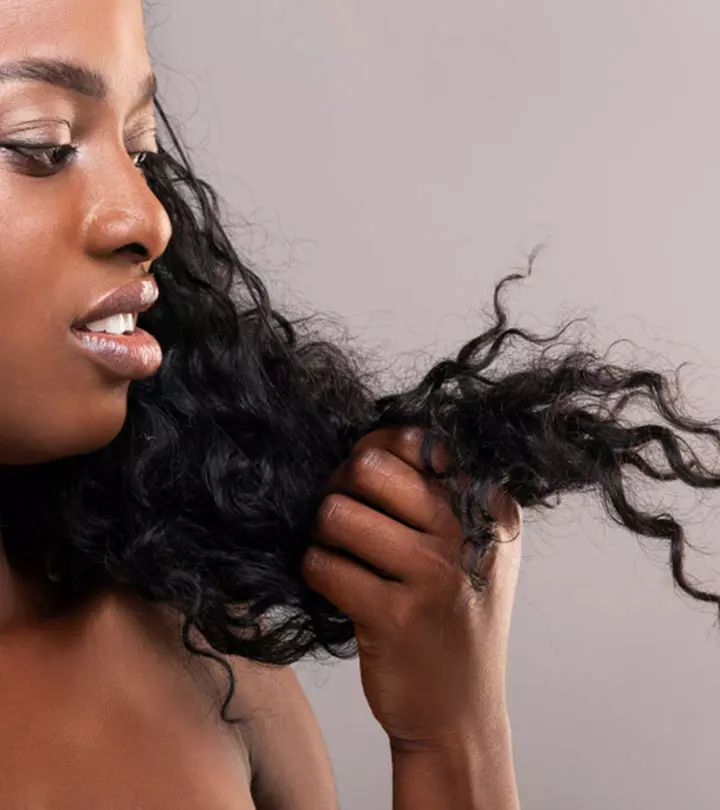
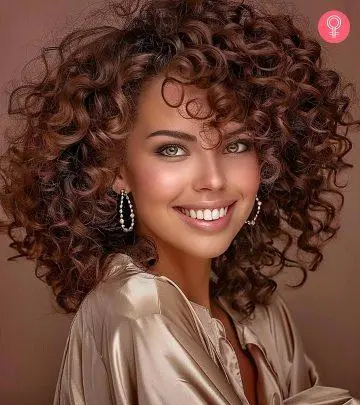


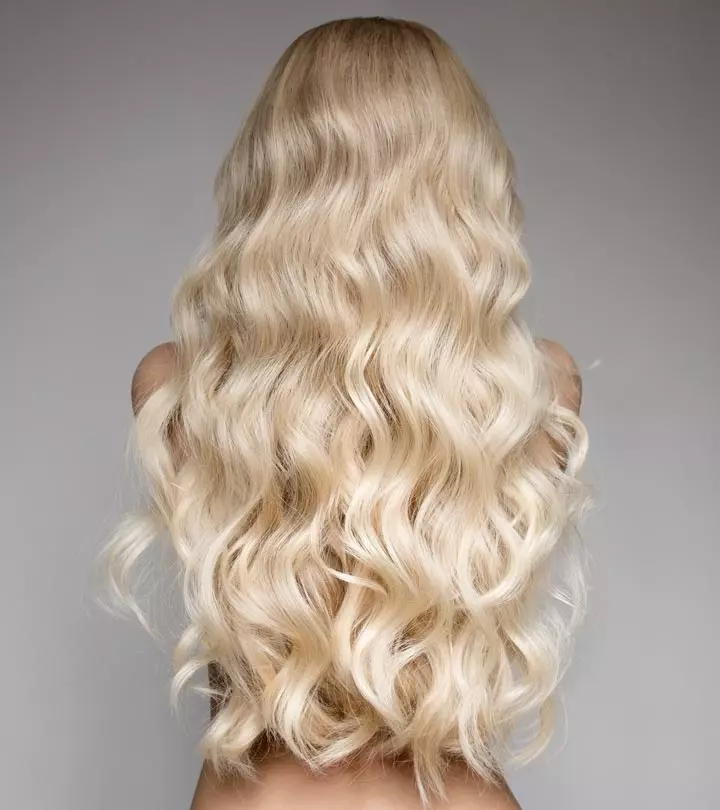


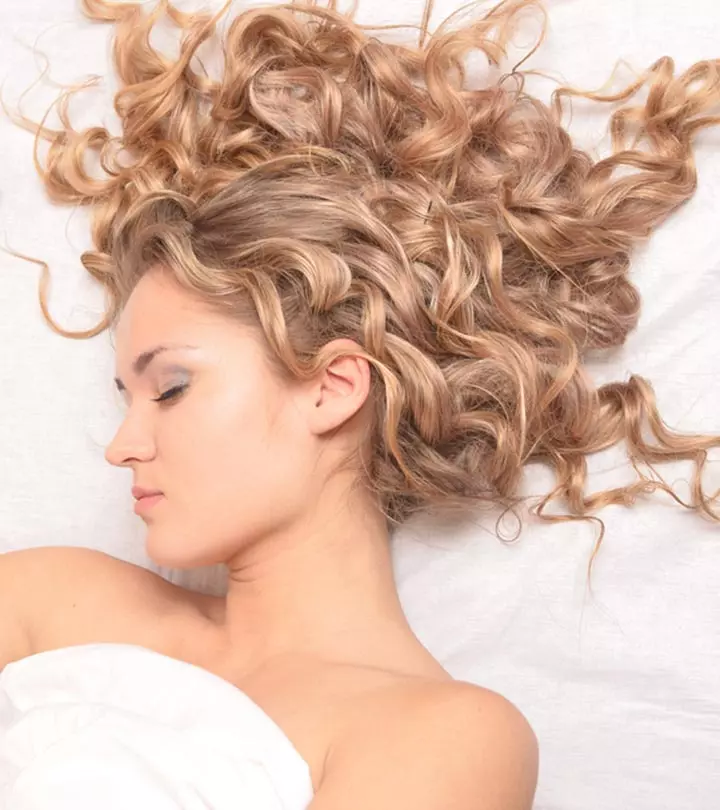



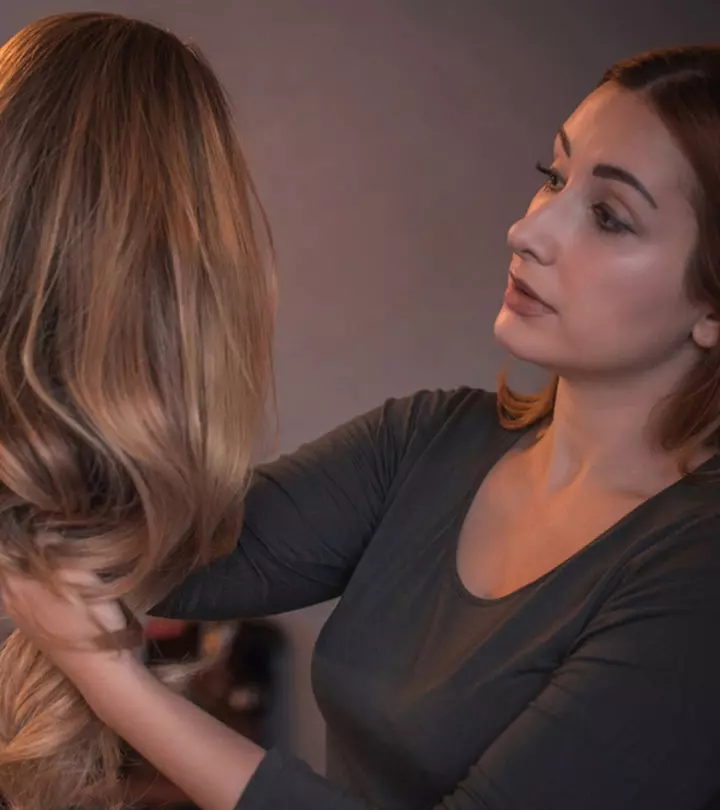

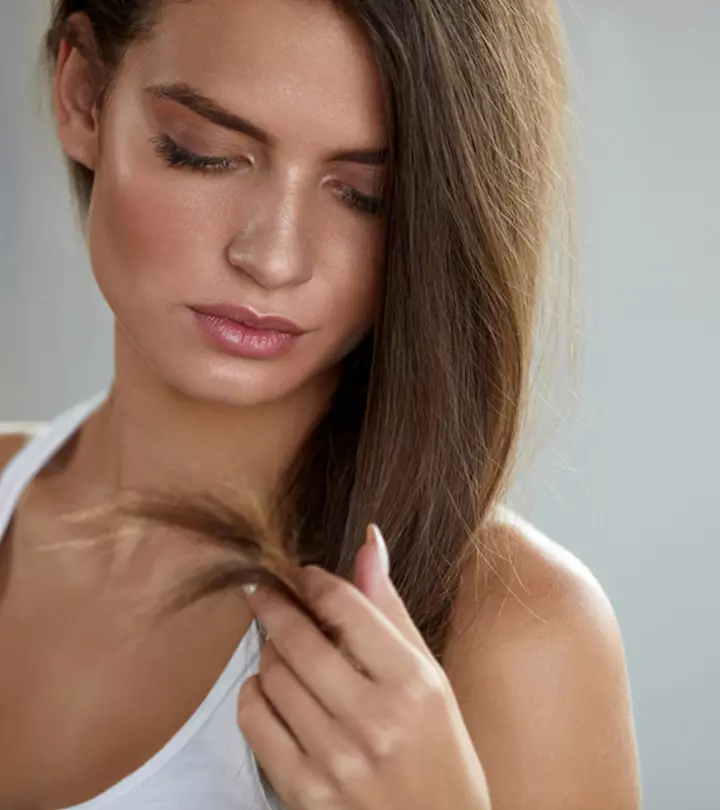
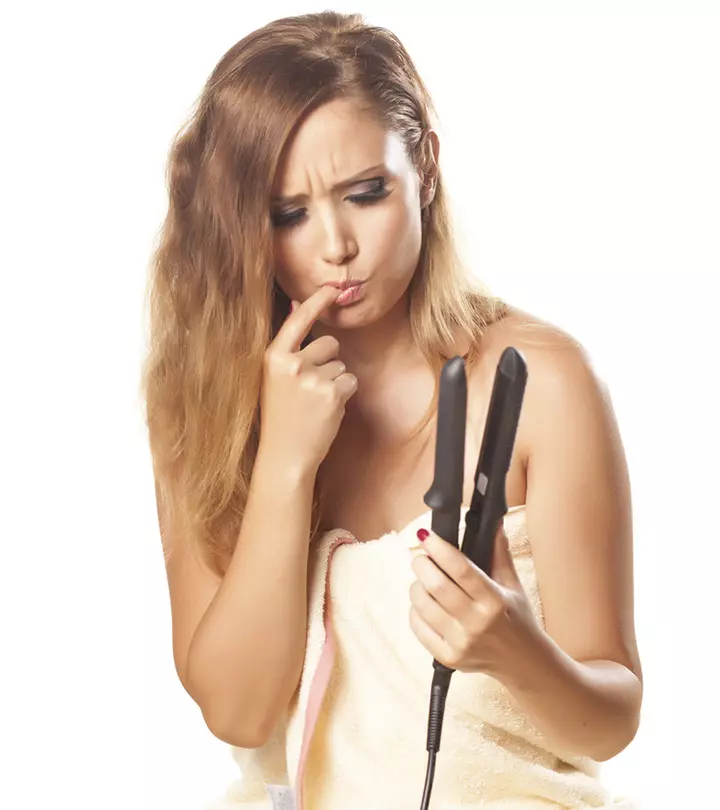
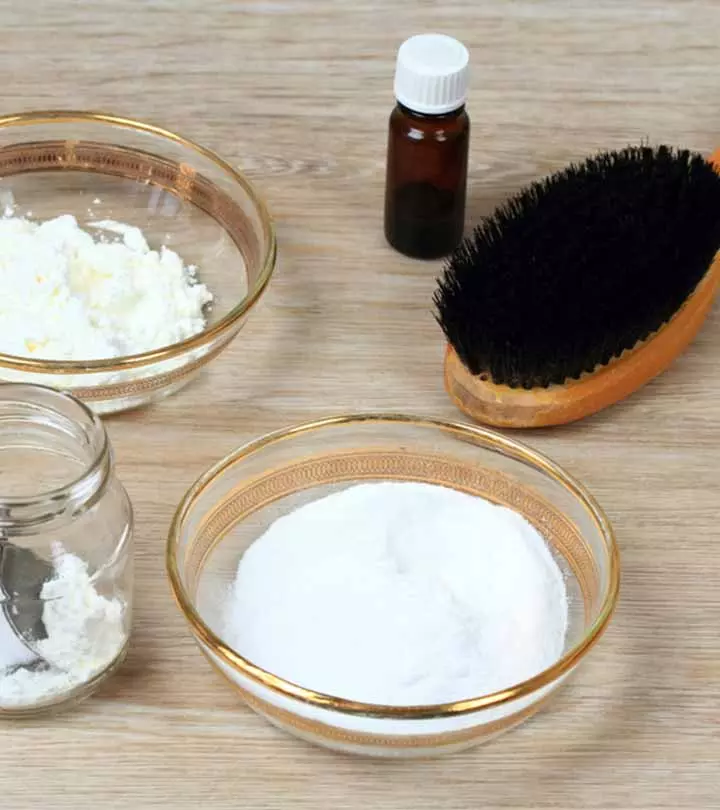
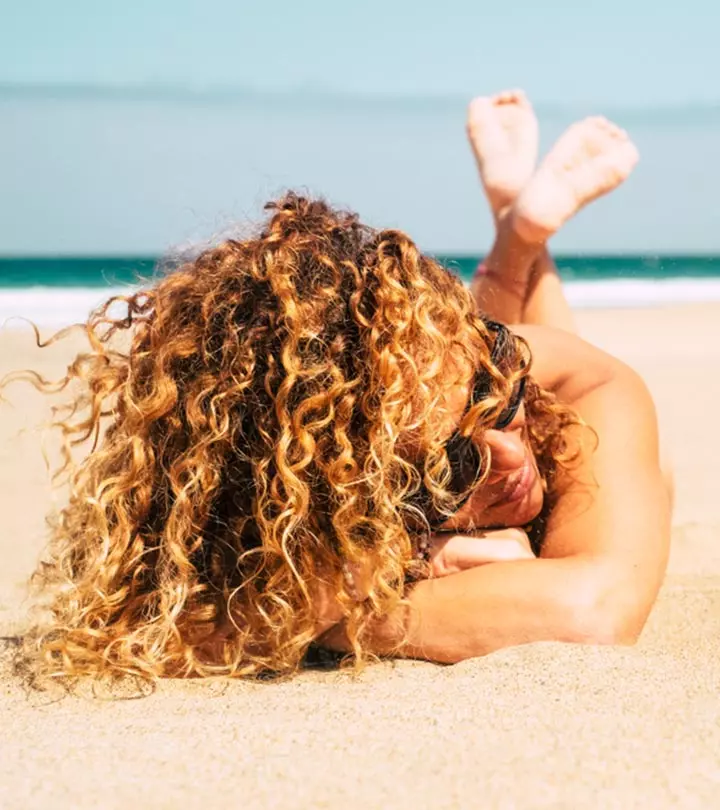

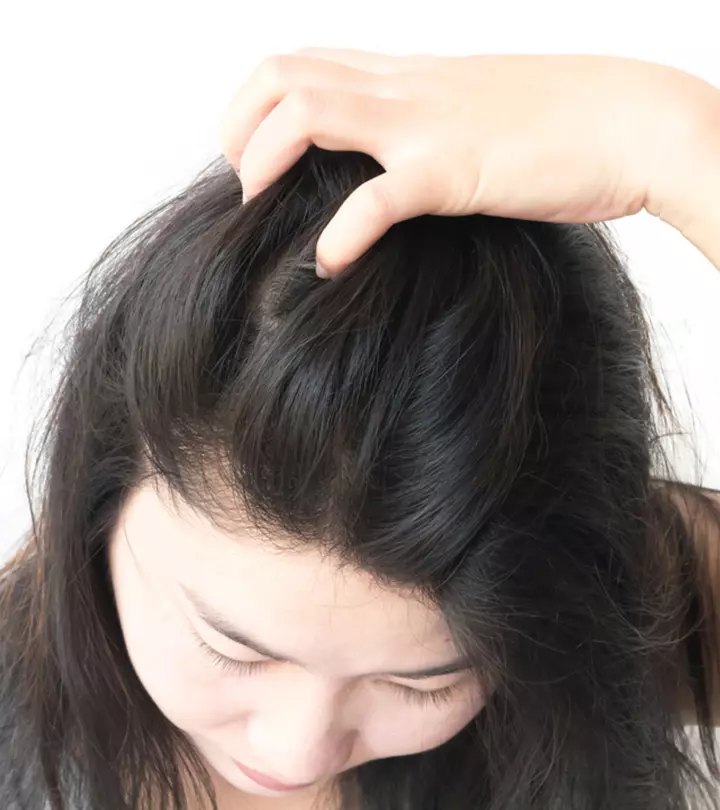
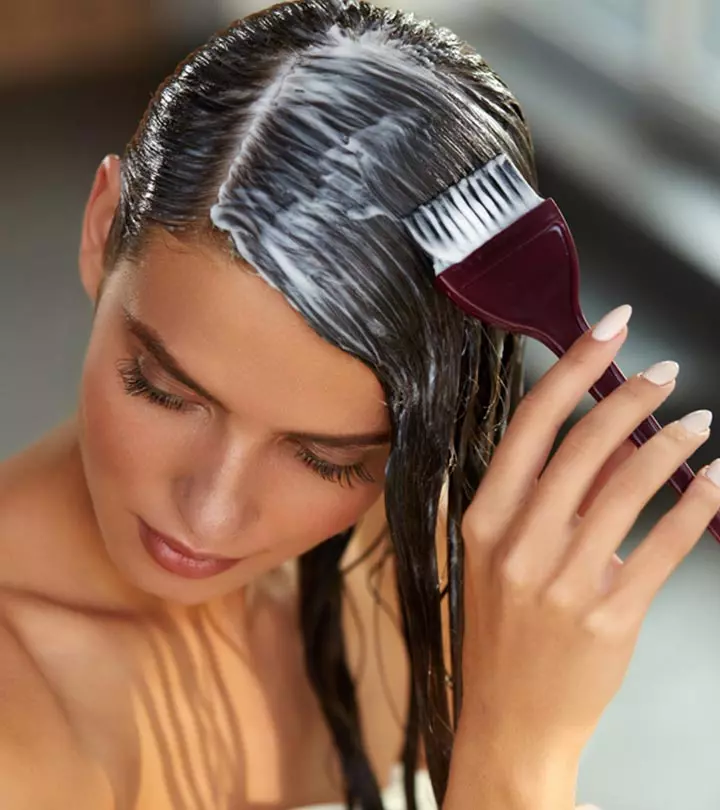

Community Experiences
Join the conversation and become a part of our empowering community! Share your stories, experiences, and insights to connect with other beauty, lifestyle, and health enthusiasts.